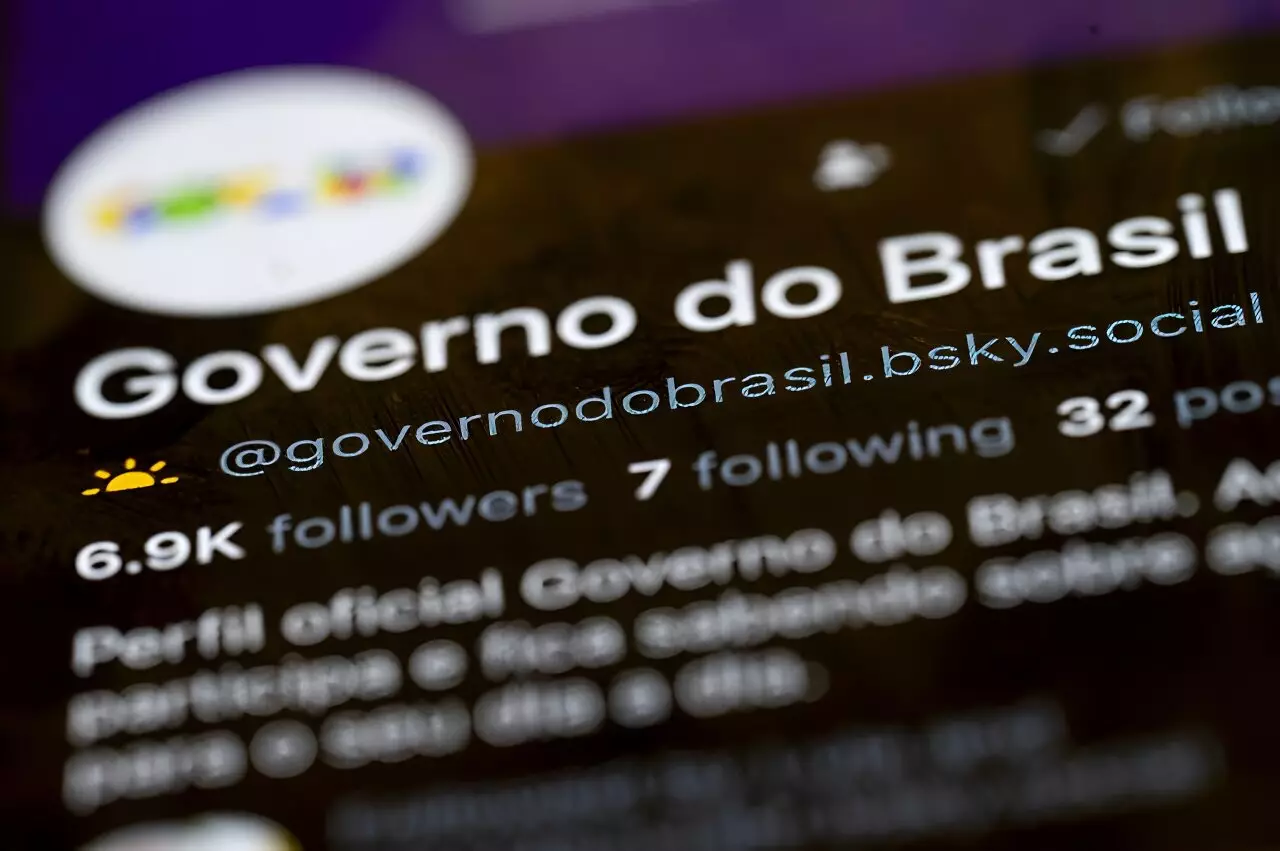In recent weeks, Brazil has experienced a seismic shift in its social media ecosystem that underscores both the country’s robust digital culture and its susceptibility to political upheaval. The suspension of Twitter—recently rebranded as X—by Brazilian courts has not only disrupted online discourse but has also ignited an intense quest for alternative platforms. Overnight, the country’s social media scene has been reconfigured, with millions of Brazilians rapidly adopting new digital homes such as Bluesky and Threads. This mass migration isn’t merely about choosing a different app; it signifies a fundamental desire to maintain free expression amidst legal and political attempts to control digital narratives.
The rapid user influx on Bluesky, created by Twitter co-founder Jack Dorsey, and the swift ascent of Threads, a Meta-owned platform, reveal a collective resilience. They demonstrate that Brazilians are unwilling to accept censorship passive or submissively. Instead, they are actively seeking spaces where they can voice opinions, connect, and remain informed. The phenomenon showcases how national crises—especially those rooted in political tensions—can accelerate technological shifts and foster new online communities that might otherwise have taken years to develop.
This digital exodus also raises critical questions about platform loyalty, trust, and privacy. The migration’s speed suggests deep-rooted dissatisfaction with the status quo, and a cry for less restrictive environments that align more closely with the country’s vibrant and often contentious political culture. Yet, this transition is not without pitfalls. Fragmentation of digital communities risks creating echo chambers and political silos, isolating users from diverse perspectives that are crucial for healthy democratic debate.
Political Tensions and Social Media: A Volatile Cocktail
The Brazilian government’s intervention—grounded in concerns over disinformation—embodied a broader global debate about regulation versus free speech. Judge Alexandre de Moraes’s decision to block X reflects a zero-tolerance approach towards platforms deemed to perpetuate falsehoods, especially in a country where misinformation campaigns can have profound societal impacts. But these measures also ignite fierce resistance from segments of the population who view such censorship as an infringement on fundamental liberties.
In this context, social media platforms have transcended their initial roles as mere communication tools; they are now battlegrounds for ideological conflicts. The sudden disappearance of X from Brazil’s digital space arguably acts as a catalyst for even more polarizing forces. Political figures like President Luiz Inácio Lula da Silva and former President Jair Bolsonaro are now maneuvering within these new platforms—Threads and Bluesky—to rally supporters, pose narratives, and shape public opinion independently of traditional oversight or moderation.
Moreover, the reluctance of conservative figures like Bolsonaro to immediately shift to Bluesky signifies underlying mistrust in new platforms’ data privacy and ownership policies. Many users remain cautious, aware that new digital spaces might carry their own risks of surveillance or bias, especially given the associations with large corporations like Meta. This underscores the delicate balance between the desire for uninhibited speech and concerns about data security, a dilemma that influences user behavior and platform popularity.
The Future of Digital Engagement in Brazil: Opportunities and Challenges
The sweeping migration to alternative platforms reveals an adaptability that many global users could learn from. Brazil’s democratized access to smartphones, with its staggering 140 million Instagram users, facilitates swift transitions between social networks. Yet, this agility also exposes vulnerabilities, such as the risk of losing sense of community and the complications of fragmented conversations across different platforms.
This sudden shift raises questions about the longevity of these new digital spaces. Will Bluesky and Threads become permanent fixtures in Brazil’s social life, or are we witnessing a transient reaction to a temporary government action? Experts suggest that the movement will likely disperse across multiple platforms, each with its own user base and limitations. This dispersion could dilute the intensity of online activism, weaken collective mobilization, and hinder the establishment of cohesive digital communities.
There’s also the concern that some users may feel more isolated or distrustful of platforms owned by large corporations—especially those linked to global surveillance and data harvesting. The skepticism surrounding Meta’s privacy policies and data handling practices fuels hesitations among users considering deep engagement. Consequently, while these platforms have the advantage of already established networks and features reminiscent of Twitter, their community dynamics may not fully replicate the immediacy and authenticity that users once found on X.
Furthermore, the polarization that characterizes Brazil’s political climate means the online space could become an arena for echo chambers, where dissenting opinions are drowned out or suppressed. Political figures leveraging these new platforms to rally their bases are likely to entrench polarization further, making social media an even more contentious battlefield.
As Brazil navigates this turbulent period of its digital evolution, what emerges is a nation determined not to cede control over its online discourse. The migration toward platforms like Bluesky and Threads is as much about technological convenience as it is about reclaiming agency in a digital age fraught with censorship, disinformation fears, and privacy concerns. This bigger picture reveals an inherent resilience, a community that refuses to be silenced, and a society that instinctively seeks spaces where free expression can flourish—despite the uncertainties that lie ahead.
The Brazilian case exemplifies how a political crisis can catalyze profound shifts in digital behavior, reshaping the landscape in ways that could redefine online engagement for years to come. While the road ahead is fraught with challenges—fragmentation, distrust, and ongoing political turbulence—the underlying message is clear: in the face of suppression, people will find new ways to connect, communicate, and resist. The digital transformation underway in Brazil isn’t just a reaction; it’s a declaration of independence in an increasingly interconnected world.

